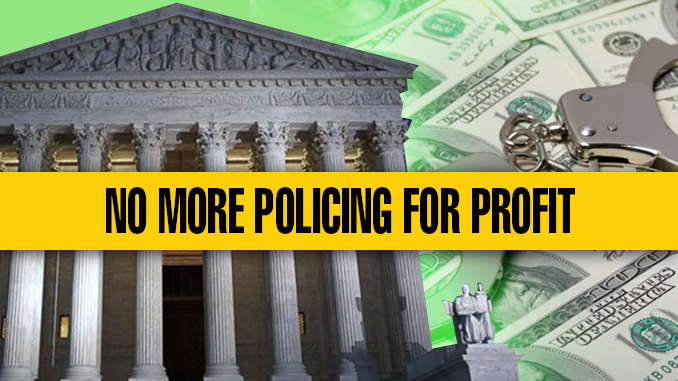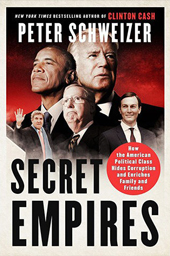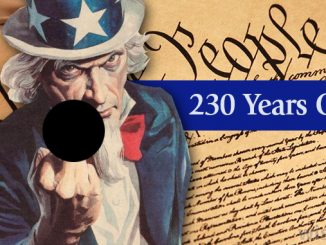
A rare unanimous decision by the U.S. Supreme Court in February condemned out-of-control civil forfeiture laws, a step toward reining in the burgeoning police state.
By Dave Gahary
The U.S. Supreme Court (SCOTUS) ruled on Feb. 20 that the Constitution places clear limits on state and local schemes to seize and keep cash, cars, houses, and other private property from persons suspected of—but not charged with—committing crimes, a legal theft mechanism prone to abuse known as “civil forfeiture.”
Although the unanimous ruling from SCOTUS doesn’t outlaw civil forfeiture, it does, for the first time, put law enforcement institutions across this nation on notice that there are limits to their brazen theft of personal property, and opens the door to new legal arguments when the value of the property seized was out of proportion to the alleged crimes involved.
In February, SCOTUS ruled 9-0 that the Eighth Amendment to the Constitution, contained in the Bill of Rights, also applies to the states under the Fourteenth Amendment.
Although the Bill of Rights was incorporated into the Constitution as a check against federal power, the Fourteenth Amendment was controversially ratified after the Civil War to apply the Bill of Rights to the states, which had allegedly engaged in “grotesque civil rights violations to perpetuate slavery.”
The Eighth Amendment states, simply, “Excessive bail shall not be required, nor excessive fines imposed, nor cruel and unusual punishments inflicted.” The most recognized text of the Fourteenth Amendment states, “. . . nor shall any state deprive any person of life, liberty, or property, without due process of law; nor deny to any person within its jurisdiction the equal protection of the laws.”
Incredibly, although SCOTUS slowly incorporated the Fourteenth Amendment to apply to the states individually, not collectively, before this 26-page ruling, Timbs v. Indiana, it never incorporated the excessive fines text of the Eighth Amendment into the Fourteenth Amendment, which allowed states and municipalities free rein “to exploit their residents for huge sums of cash and property.”

The plaintiff in the case, Tyson Timbs, a small-time Indiana drug dealer, pled guilty to selling $225 of heroin to undercover police officers and was sentenced to one year of house arrest and five years of probation and was ordered to pay $1,200 in fines and fees. Indiana state officials also seized his $42,000 Land Rover, claiming he used it to commit crimes.
Ailing Justice Ruth Bader Ginsburg, writing the opinion, stated, “The historical and logical case for concluding that the Fourteenth Amendment incorporates the Excessive Fines Clause is overwhelming.”
The ruling’s last paragraph, written by Associate Justice Clarence Thomas, concurring in the judgment, put the decision in perspective:
The right against excessive fines traces its lineage back in English law nearly a millennium, and from the founding of our country, it has been consistently recognized as a core right worthy of constitutional protection. As a constitutionally enumerated right understood to be a privilege of American citizenship, the Eighth Amendment’s prohibition on excessive fines applies in full to the states.
This newspaper has extensively covered civil forfeiture—a popular way states and municipalities raise revenue—highlighting the Massachusetts case involving Russ Caswell, who was targeted because his motel rooms were allegedly used to conduct drug deals.
Although Caswell never broke any laws, nor had he ever been arrested or convicted of any crime in his entire life, his local government still attempted to steal his mortgage-free property using civil forfeiture statutes. Fortunately for Caswell—and all freedom-loving Americans—his over three-year saga ended when a U.S. magistrate judge ruled the government did not meet “its burden of proving a substantial connection between the Motel Caswell and the forfeitable crimes, and, therefore, has not met its burden of proving that the property is forfeitable.”
Dave Gahary, a former submariner in the U.S. Navy, prevailed in a suit brought by the New York Stock Exchange in an attempt to silence him. Dave is the producer of an upcoming full-length feature film about the attack on the USS Liberty. See erasingtheliberty.com for more information and to get the new book on which the movie will be based, Erasing the Liberty.





This is certainly good news, but, wait, I thought theft had already been determined to be unlawful by the Only One wit the authority to make such determinations – see Exodus 20:15, etc.
So what if these nine fickle finite men and women had instead decided in favor of civil forfeiture (like they did with sodomite “marriages,” etc.), would that have made it lawful?
This is what comes from a juridical system devoid of an immutable/unchanging moral standard, found only in the Bible’s triune moral law, that is, the Ten Commandments and their respective statutes and judgments. Anything goes at any given time depending upon the capricious morality/immorality of nine Supreme Court Justices, which, of course might be overruled by the next set of nine biblically unqualified finites.
The following example illustrates the disparity between man’s ever-changing standard and the Bible’s never-changing standard:
“Two people could have walked down any U.S. street in 1930 – one with a bottle of whiskey under his arm and one with a bar of gold in his pocket, and the one with the whiskey would have been a criminal whereas the one with the bar of gold would have been considered a good law abiding citizen. If the same thing happened in any U.S. city in 1970, the one with the whiskey would be the law abiding citizen and the one with the gold bar would be the criminal.” (W.W. Turner, The Amazing Story of the British Sovereign (Nashville, TN: 1970) p. 4)
Isaiah 33:22 and James 4:12 declare that Yahweh is the exclusive legislator. There are no others, period! Anyone who claims the title of legislator (particularly when his “laws”—whether commandments, statutes, or judgments—are inconsonant with Yahweh’s) is a usurper and is perpetuating the sin begun by Adam and Eve. The same is true for any one of us who would modify Yahweh’s triune law.
For more regarding these two polar opposite forms of government (government of, by, and for the people and government of, by, and for God), Google online Chapter 3 “The Preamble: WE THE PEOPLE vs. YAHWEH” of “Bible Law vs. the United States Constitution: The Christian Perspective.”
Then see Chapter 4 “Article 6: Judicial Usurpation.”
Find out how much you really know about the Constitution. Take our 10-question Constitution Survey in the right-hand sidebar and receive a complimentary copy of the 85-page “Primer” of “BL vs. USC.”
In a mere forty-year period, man’s standard had completely reversed itself. The same transposition of ethics has occurred innumerable times under all governments based upon the traditions of man.